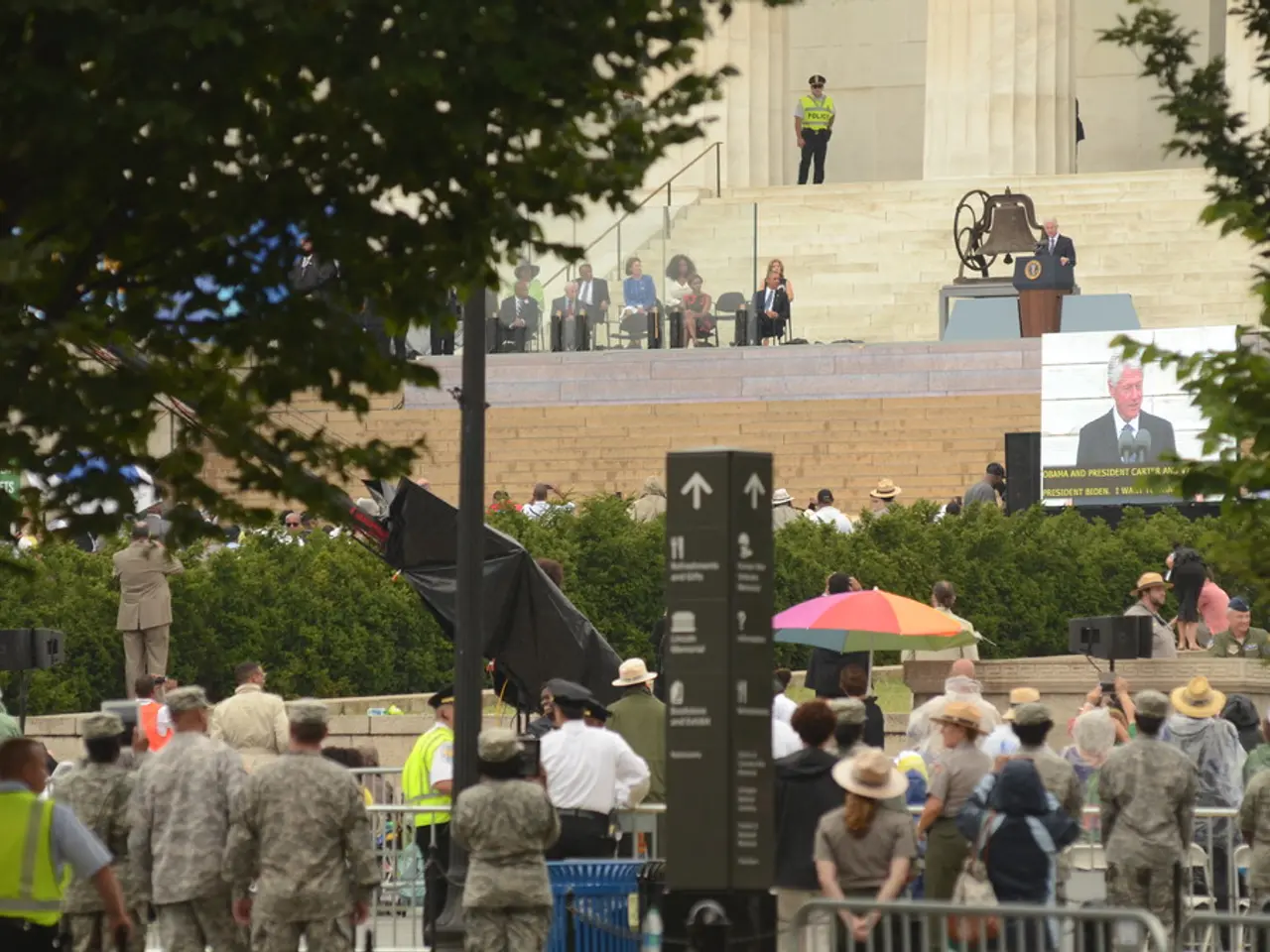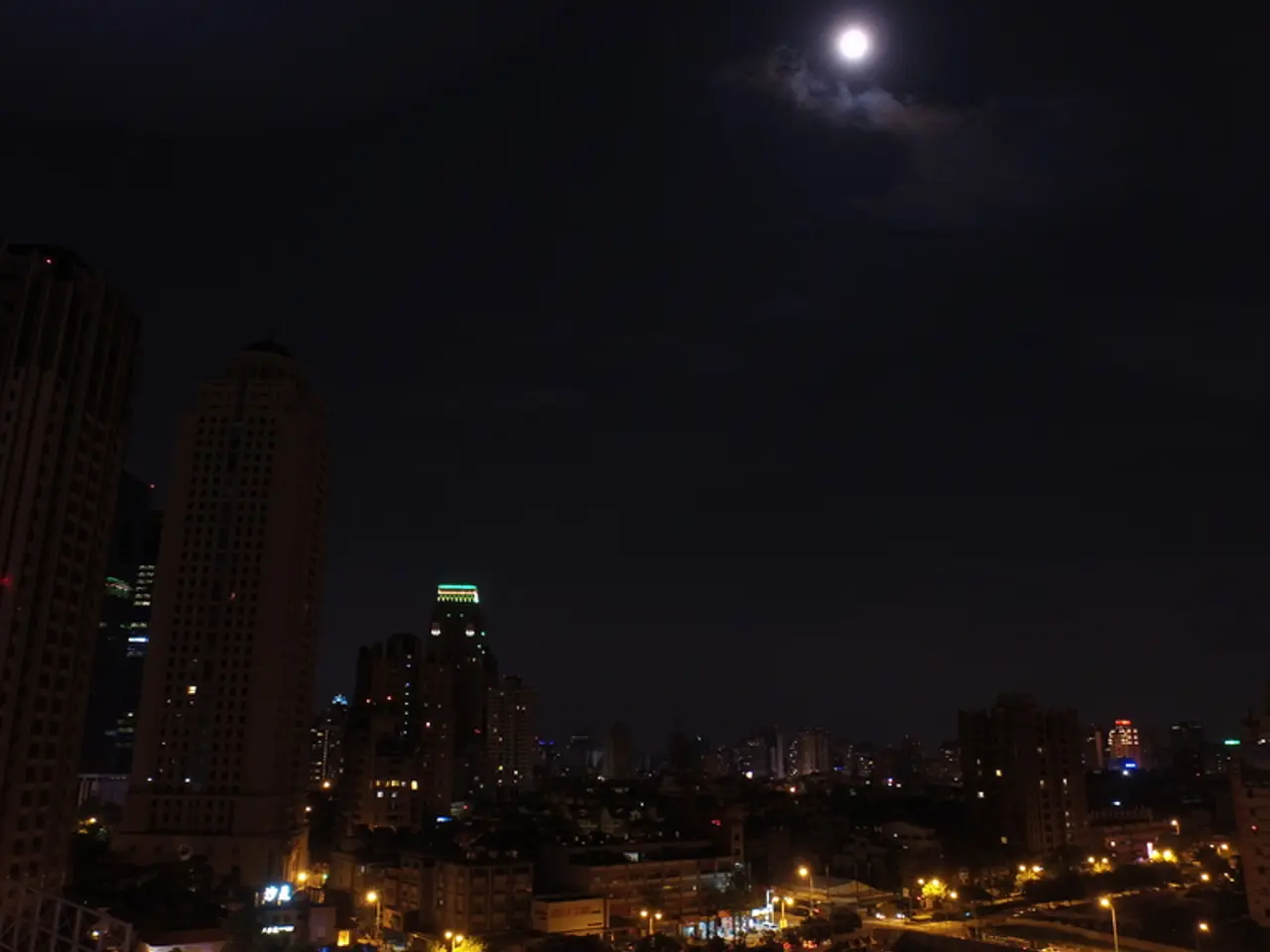Pakistan military forces eliminate 30 militants attempting border crossing from Afghanistan
In the wake of a ceasefire following a brief but intense conflict, often referred to as the "100-hour war," tensions between India and Pakistan remain high. The recent terrorist attack in Pahalgam, Jammu and Kashmir, which resulted in the deaths of 26 civilians, mostly Hindu tourists, has escalated the already strained relations between the two nuclear-armed neighbors.
The Resistance Front (TRF), linked to Lashkar-e-Taiba, initially claimed responsibility for the attack, but later retracted it. India, however, accused Pakistan of harboring militants responsible for the Pahalgam attack, leading to a withdrawal of diplomatic envoys and a halt in bilateral dialogues. Pakistan, on the other hand, denied these accusations, but tensions continued to rise, leading to a diplomatic crisis and border skirmishes.
The conflict marked the first time drones were used in combat between the two nations, signaling a new dimension in their military engagements. Following the attack, India launched missile and air strikes on alleged militant camps in Pakistan and Pakistan-administered Kashmir. This led to a significant escalation, with both countries exchanging missile fire and engaging in aerial combat.
Despite the ceasefire, initiated through international mediation, particularly from the United States, tensions remain high. India has suspended all trade with Pakistan, closed the only open land border, and suspended the Indus Waters Treaty, marking significant steps away from the pre-conflict status quo.
In recent months, Pakistan has increased accusations against India for backing militant groups. The Pakistan army reported killing 30 militants over the last three days, with the militants belonging to the Pakistan Taliban or its affiliated groups. Pakistan's Prime Minister Shehbaz Sharif's office stated that Pakistan is determined to completely eliminate all forms of terrorism from the country. The killings occurred in the border district of North Waziristan.
The ceasefire between India and Pakistan remains fragile despite the recent accusations and counter-accusations. Overnight clashes have occurred, but both sides have managed to maintain the ceasefire. The prime minister's office of Pakistan issued a statement on the matter on Friday, accusing India of fomenting militancy in Pakistan and supporting gunmen who killed 26 civilians on April 22 in the contested Kashmir region.
The security forces demonstrated exceptional professionalism, vigilance, and preparedness in thwarting an infiltration attempt. A large quantity of weapons, ammunition, and explosives were recovered. Pakistan's Prime Minister Shehbaz Sharif praised the security forces for their efforts.
The ongoing conflict has highlighted the evolving complexity of India-Pakistan relations and the heightened risk of nuclear escalation. Diplomatic efforts are ongoing to stabilize the situation and prevent further escalation. Since their independence, India and Pakistan have frequently fought over Kashmir, a region claimed in full by both sides. The recent incidents serve as a stark reminder of the fragile peace between the two nations and the potential for future conflict.
[1] https://www.bbc.com/news/world-asia-india-56894018 [2] https://www.aljazeera.com/news/2021/5/10/india-pakistan-ceasefire-takes-effect-after-100-hour-war [3] https://www.reuters.com/world/asia-pacific/india-pakistan-ceasefire-takes-effect-after-100-hour-war-2021-05-10/ [4] https://www.nytimes.com/2021/05/10/world/asia/india-pakistan-ceasefire.html
- The ongoing diplomatic crisis between India and Pakistan, fueled by allegations of harboring militants and escalating tensions, has led to a halt in bilateral dialogues and the withdrawal of diplomatic envoys, signifying a renewed period of political and crime-and-justice related challenges.
- In the aftermath of the Pahalgam terrorist attack, the evolving complexity of war-and-conflicts between India and Pakistan has come to light, with both countries employing unconventional tactics like drone warfare, resulting in an escalation of general-news headlines and raising concerns about nuclear escalation.
- Amidst the ongoing diplomatic crisis, Pakistan's Prime Minister Shehbaz Sharif has emphasized his government's commitment to eliminating terrorism within the country, as Pakistan continues to accuse India of backing militant groups and fomenting militancy, increasing the likelihood of future conflicts in the war-and-conflicts landscape.







